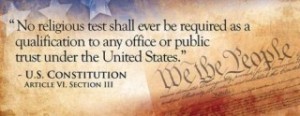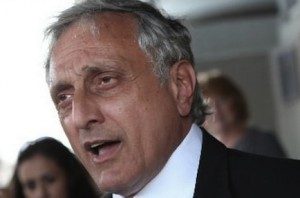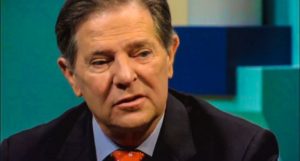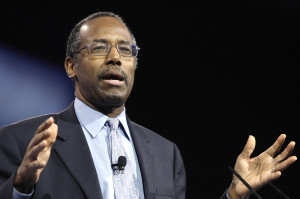How many times do I have to remind religious zealots about what Article VI of the U.S. Constitution says about how “no religious Test shall ever be required as a Qualification to any Office or public Trust under the United States”?
Don’t answer that. I’ll keep saying it for as long as it takes.
While skimming through the TV channels this evening I ventured onto a news channel and listened to a former football coach say that Joe Biden is a “Catholic in name only.” Lou Holtz, the former Notre Dame coach, was speaking on behalf of Donald Trump but then decided he knows what is in the heart of Joe Biden.
Yep, Coach Holtz went far beyond the Xs and Os of drawing a football play and straight into territory where he doesn’t belong.
Donald Trump has declared that Biden is “anti-God” and “anti-Bible.” The practicing Catholic would destroy our faith, according to a president who has no relationship with any religious faith.
I am going to circle back to what the Constitution instructs us. It is a secular document written by men who took great pains to keep religion far away from the government they were creating. Article VI is as crystal clear as it gets. No candidate for public office should be required to adhere to any religious faith.
Biden doesn’t run away from his Catholicism. He flaunts it. He carries Rosary beads. He smears ash on his forehead to commemorate Ash Wednesday every spring. He is free to do that. He would be free to not do it as well.
The Constitution doesn’t require us to attend any house of worship. If it did, well, Donald Trump wouldn’t qualify as a presidential candidate. You know what I mean?
So, for Lou Holtz to step into a religious thicket by hurling an epithet at a man of faith is reprehensible. Stick to talking football, coach. Take a look, too, at what the Constitution’s Article VI instructs us.



